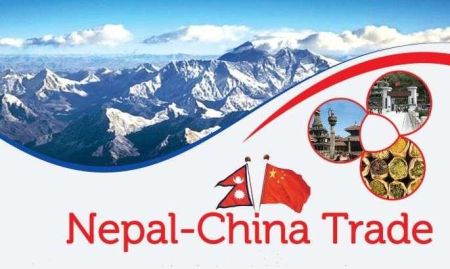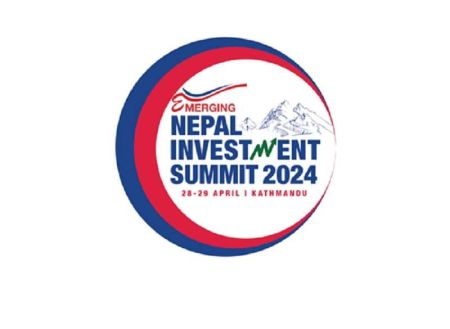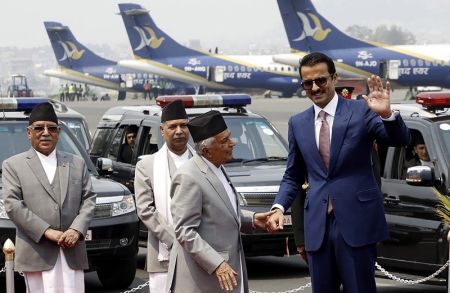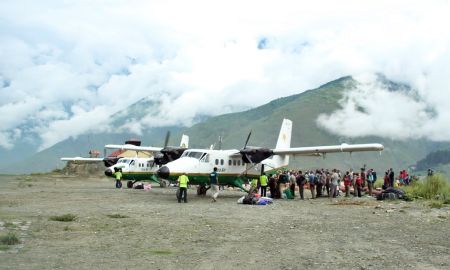.jpg) Turkish Airlines took to the skies 80 years ago as Turkey’s flagship carrier. It was started with the goal of becoming one of Europe’s top airlines and also to function on a global scale. A member of the Star Alliance, Turkish Airlines now flies to more than 235 destinations worldwide and offers the most convenient routes to Turkey, Europe, Africa, The Middle East, Far East, Asia and the Americas, all via Istanbul. Kathmandu has joined the network on the first of September. According to the airlines, roundtrip flights between Istanbul and Kathmandu are operated 4 times per week on Tuesdays, Thursdays, Fridays and Sundays from Istanbul, and Mondays, Wednesdays, Fridays and Saturdays from Kathmandu. In an interview with New Business Age’s Siromani Dhungana, General Manager of Turkish Airlines Celal Baykal explains the journey of Turkish airlines in Nepal while also highlighting the future plans of this airline. Excerpt:
Turkish Airlines took to the skies 80 years ago as Turkey’s flagship carrier. It was started with the goal of becoming one of Europe’s top airlines and also to function on a global scale. A member of the Star Alliance, Turkish Airlines now flies to more than 235 destinations worldwide and offers the most convenient routes to Turkey, Europe, Africa, The Middle East, Far East, Asia and the Americas, all via Istanbul. Kathmandu has joined the network on the first of September. According to the airlines, roundtrip flights between Istanbul and Kathmandu are operated 4 times per week on Tuesdays, Thursdays, Fridays and Sundays from Istanbul, and Mondays, Wednesdays, Fridays and Saturdays from Kathmandu. In an interview with New Business Age’s Siromani Dhungana, General Manager of Turkish Airlines Celal Baykal explains the journey of Turkish airlines in Nepal while also highlighting the future plans of this airline. Excerpt: What attracted Turkish Airlines for launching its services in Nepal?
We officially started our airline in Nepal from September, this year. The reason why we are here is that we are trying to operate in as many countries as we can so as to be an airline reaching many destinations all over the world. Similarly, we want to expand our network because we want to be a network generator. We particularly chose Nepal because of its huge potential. Nepal was already in our plan for many years. But, it took some time to arrange everything and now finally we are operating in Nepal.
Can you please describe the background of your decision to come to Nepal?
Yes, I remember those days very well. Expanding reach to a new country involves a lot of research and know-how to gather a lot of information about the country and you have to analyze it as soon as possible. The first thing I did was to get in touch with colleagues in the business environment. I developed connections with my sectoral colleagues who have been working in Nepal and also with people who have visited Nepal before. Coming to Asia and in Nepal was itself something new for me. I was in Amsterdam. So, if it is a big change, it is also a challenge in my career providing me with numerous opportunities to learn about markets all over the world.
How has the journey for Turkish airlines in Nepal been so far?
We are doing quite well. I cannot put anything negative yet. Our flights are almost fully booked and sometimes we have over-bookings. There is a lot of potential in Nepal and we need to focus on that. There are so many places with natural landscapes and thus viable for natural tourism. Considering these prospects, we are aspiring to do much more in Nepal in the near future.
What do you have to say about market competition in Nepal?
Competition is ever-present in any field. If there is no competition, you become weak. So, I consider competition to be beneficial. We have been working in the market regardless of competition. This was the same in Amsterdam too, where I worked before. As an airline, we are used to lot of competition.
What are your strategies to expand your market here in Nepal?
We want to strongly increase our presence but, we don’t know where and what the time will be. In the near future, we will surely increase our frequencies. There are some places where we want to expand and one of these places is Nepal. We have just begun our services here and we definitely intend to do more in the future.
Where do you see yourself in 5 years?
In 5 years time, we will be able to understand the market more closely and it is sure to make a difference in my personal career as well. We will learn about the cultures here and incorporate it in our business strategy.
What are the complications of conducting business in Nepal?
We do not keep looking at problems but, ways to solve them. If you talk about problems, you can continue talking about them for years. We are here to achieve, not to complain. We are here to make a difference. Looking at Nepal’s human resource, I can say there is no much difference in terms of quality of people. Though there are some differences between working in Amsterdam and in Nepal, but I am confident that I can rely on Nepali colleagues to get through it.
What assurances do you give about the service standards of your airline?
We have already won some awards, especially the ones related to hospitality and that is our day to day experience. We also won the best kitchen in business class and even in the economy class. We are still investing in our catering and in some areas, we have also tried changing our catering services for responding to our consumers need.
Do you have any specific plan for customer satisfaction?
Turkish Airlines has built its financial strength on national and international standards, legislation and regulations. It maintains its social, cultural, ethical and humanitarian values through productive management and an effective approach towards processes, the continuous improvement of service quality, and the management of customer satisfaction together with their employees, customers, sub-contractors, partners and shareholders.
Turkish Airlines: Vision and Values
Visions:
To become an air carrier with;
• a continued growth trend over industry average
• zero major accidents/crashes
• most envied service levels worldwide
• unit costs equating with low cost carriers
• sales and distribution costs below industry averages
• a personnel constantly developing their qualifications with the awareness of the close relationship between the benefits for the company and the added value that they contribute
• an entrepreneurship that creates business opportunities for fellow members in the Star Alliance and takes advantage of the business potential provided by them
• a staff well adapted to modern governance principles by observing the best interests of not only shareholders but also stakeholders
Core Values:
• Honesty and Fair Dealing
• Customer Satisfaction
• Demonstrating Respect to Individuals
• Innovation
• Team Work
• Leadership
• Productivity
• Confidentiality
• “Open Door” Policy





















